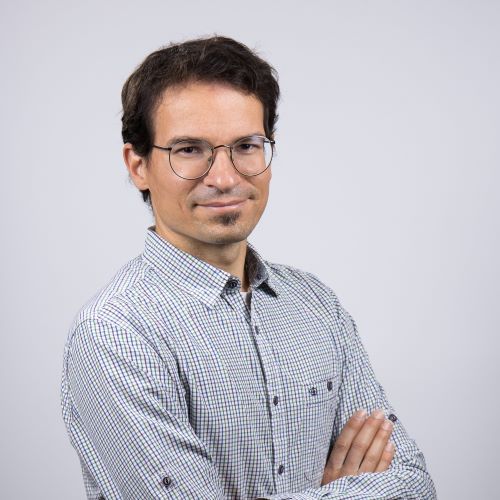
The first practical applications of quantum computers could be built on the procedure described in a study by András Gilyén, a researcher at the Rényi Institute, entitled “Efficient Quantum Thermal Simulation”. The article published in the journal Nature summarizes the breakthrough results of a multi-year research collaboration on the algorithm they developed. The new procedure can effectively simulate certain processes that occur in nature, which could play an important role in the quantum computer analysis of exotic molecules and material structures, and even in the discovery of new materials.
András Gilyén recently won a Starting Grant from the European Research Council (ERC). His winning proposal also deals with quantum algorithms inspired by open quantum systems occurring in nature, and builds largely on the results of the study just published.
“We learn from nature how it works with quantum systems and compare this with our knowledge of computational science and statistical physics. This is how we start to develop new algorithms, mostly for simulation tasks related to different quantum systems. We hope that this will lead to answering important theoretical questions that may be relevant in materials science or quantum chemistry,” said the researcher from the Rényi Institute regarding his application.
The study published in the journal Nature summarizes the results of the research of recent years.
“Originally, the first motivation for building quantum computers was to enable simulations of various quantum physical systems that are too challenging for classical computers. The low-energy states observed in nature – which are really interesting – would have to be reached somehow first, but it is not clear what they look like exactly. This is exactly what we want to understand. So far, there have been various ideas for reaching them, but in many cases, these did not work well because they were all deterministic, i.e., followed a sequence of predetermined steps. This study of ours is about how to combine the advantages of quantum algorithms with the advantages of random algorithms,” explained András Gilyén.
"When we want to understand a quantum state, a kind of randomness comes from the final quantum measurement. But people typically think of the inner workings of quantum computers as deterministic steps taking place between fixed quantum states. This is very different from random algorithms that are particularly useful in classical computing and which are used when we don't know exactly how we should get to the solution, so we rely on random steps. If you set these up carefully, they are often effective, and this can even be proven. Such procedures are very useful for various search problems where it is not entirely clear how we should get to the target," the researcher explained the details.
“In our article, we describe a new quantum generalization of such a random method, which allows the power of randomness to be fully exploited within a quantum computer. Our work may open a new chapter in research, especially in the development of quantum algorithms that use randomness and in the analysis and proof of their correct operation,” emphasized András Gilyén.
